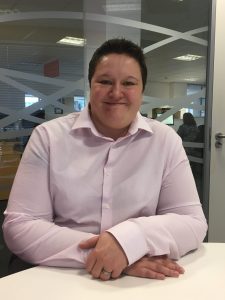At Connect Health we have over 680,000 attended physiotherapy/tier 2 MSK appointments each year. We pride ourselves on our patient-first approach, yet various challenges – time constraints, complex cases, the COVID backlog and the administration of keeping clinical records updated – adds extra pressure to our hardworking teams.
We needed a solution to reduce some of this burden on our colleagues, while still ensuring our patients had meaningful time with clinicians.
The DECon project
We’d already launched PhysioNow within tier 1 physiotherapy services in Connect in 2020 – this is a digital self-assessment and stratification tool, which provides information to physiotherapists about the patient prior to their consultation.
Now widely used across the organisation, feedback has been consistently positive. This led me to think about how it may be used for tier 2 MSK services to benefit complex patients, enabling them to provide some history alongside their goals and expectations for the consultation, ahead of their appointment.
There was a clear opportunity for us to develop a solution that would automatically integrate this pre-appointment information into our system – with the objective of making consultations more efficient and personalised, with better clinical outcomes. This became known as the digitally-enhanced consultations (DECon) project.
Tapping into HEE training
In late 2020, I successfully applied for a place on the Topol Digital Fellowship programme run by Health Education England.
Launched following The Topol Review in 2019, which set out key recommendations on how technology can be utilised more effectively to benefit patients, the Fellowship programme provides health professionals with time, support and training to lead digital health transformation within their organisation.
I started the course in March 2021, with 40% of my time for the year allocated to the programme and working on the DECon project. My training included workshops on digital design, agile working, impact measurement, research, prototyping, testing, and machine learning/artificial intelligence.
Identifying challenges
The activity kicked off with patient interviews to identify current challenges. Similar themes emerged: how technology was not meeting accessibility criteria; the lack of translation services; patients forgetting what they wanted to say in front of a clinician or feeling unable to give the information they wished because clinicians interrupted them. Another common thread was patients finding clinical letters frustrating – the symptoms documented weren’t always accurate or had been paraphrased.
This insight was used to develop our initial draft questionnaire, which was tested, reviewed and modified, resulting in a final pre-qualifying questionnaire.
We designed the system so the patient’s answers would be the first points accessible within the records; clinicians wouldn’t need to search to find the most recent notes. The added benefit of this functionality is that when we contact patients by letter afterwards, we can detail what they told us in their own words, simply by clicking a button.
Putting theory into practice
The next stage of the project focused on bringing our development teams in to build the initial prototype. We reviewed several different translation software solutions – patients, staff and their families helped us undertake extensive user testing in multiple languages.
At the same time, our application support team were looking at how to code key information into our electronic patient record system (Systm1), using an Application Programming Interface (API), so the information could then be pulled into clinical letters.
We piloted DECon in Nottingham, where several of the project team were based – the clinicians were already very engaged and bought into the activity, enabling us to obtain continual feedback and make improvements.
We then tested in our Herts Valley contract – a much larger area than Nottingham, where there was no previous clinical involvement. Once more, clinician and patient feedback was essential in helping us to identify bugs in how the data was pulling through, as well as issues with certain devices and software.
DECon goes live
Digitally-enhanced consultations are now live across all our tier 2 MSK services. Any patient with an appointment receives a link to our patient portal, where they can complete the questionnaire. More than 11,160 patients have received it to date, with an average completion rate of 41% – much higher than national data sets (we’ve been told anecdotally they average 20%). We continue to review how we optimise messages and the portal to further improve patient uptake.
Thanks to our translation software, 117 languages can be translated by typing, with seven languages accessible via voice dictation. The form can be completed via dictation or typing and meets NHS accessibility guidelines for screen readers.
Most valuably for our clinicians, the information from completed questionnaires is transferred within 24 hours of submission to Systm1.
My personal journey
Through the Topol Digital Fellowship, I’ve gained enormous insight into the delivery of digital transformation projects like DECon, and strengthened my project management skills. I’ve also expanded my professional network and had the opportunity to speak at national conferences.
The whole experience has been highly collaborative, which was particularly rewarding; so many different people with varied skillsets from across the organisation were involved. Much of the technology we experimented with in DECon is now being used across Connect’s technology solutions – a brilliant result.
The patient feedback we’ve received has been very positive. Just the other day a patient told me she loves being able to give information via the questionnaire beforehand, as she often gets ‘white-coat syndrome’– forgetting what she was planning to tell the clinician during the appointment. She said she’s now much calmer during consultations and said her approach to appointments has ‘completely changed’, which is wonderful to hear. It shows how much we’ve helped to improve the patient experience through the innovation of the DECon project.
The project exemplifies Connect’s core values of being forward-thinking and putting patients at the heart of everything we do – and I’m extremely proud of the part I played in making it a reality.


